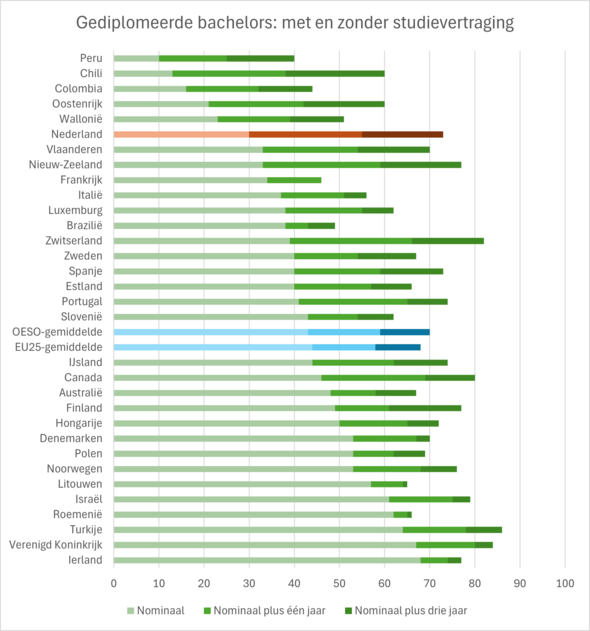In some countries, it is much more common for students to graduate exactly on time. Two-thirds of all Irish and British bachelor’s students obtain their degree within the set timeframe. In Ireland in particular, hardly any students experience delays.
The situation in the Netherlands is quite different. Only 30 percent graduate within the nominal period, 25 percent take up to one extra year, and 18 percent experience even longer delays, according to the OECD’s Education at a Glance 2025 report. The OECD is an economic cooperation organization of 38 mostly wealthy countries.
At the same time, Dutch bachelor’s students are more likely to finish their degree eventually than those in other countries. More than 73 percent of Dutch students ultimately graduate, compared to the OECD average of 70 percent.
Extended study periods
The outgoing government twice attempted to introduce a late graduation penalty for students taking too long. They would have had to pay an additional three thousand euros in tuition fees if they exceeded the nominal period by more than a year. The plan faced strong resistance and was eventually abandoned.
In current election programs, only BBB still advocates for a form of late graduation penalty. The VVD, on the other hand, proposes a bonus for students who graduate on time. It remains unclear, however, who would cover the cost of such a bonus.
OECD disclaimer
Figures on bachelor’s degree completion are not available for the United States. The data always lags somewhat. In this case, the reference year is 2023. These students all studied during the COVID-19 pandemic, when education was heavily disrupted by lockdowns.
This article was translated using AI-assisted tools and reviewed by an editor.



Discussion